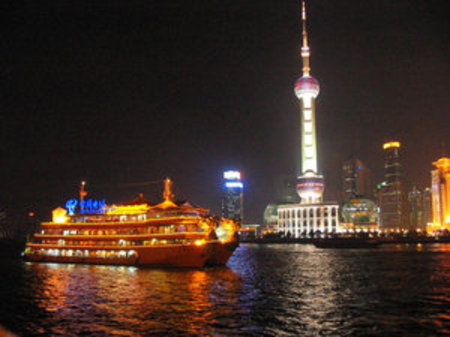I enjoy John Robb’s Global Guerillas blog but there’s one question he never asks, let alone answers:
How many people must violently dissent before a society becomes ungovernable?
I have long thought about a related question, how many people must dissent from a law before it becomes unenforceable. If 1% of us use hard drugs, we may still find a law can be enforced, albeit with considerable brutality and collateral damage. If 10% of us smoke pot, the law can only be enforced at the margins, yet we may still consider it enforced. If 30% of us are inclined to speed down the highway, the law can’t really be enforced at all.
I bring up this point, in part, because of press reports that Spain’s Prime Minister is in trouble because the Basque separatist movement ETA has ended its ceasefire. Yet a Russian news service reports (with some pride) that ETA has "at least 100" heavily armed gunmen, and the infrastructure (money, popular support) to maintain them in the field.
Can 100 armed men really bring down a country the size of Spain? And if they can, what does that say about the viability of civilization as a whole?
Of course there are many other examples of armed groups either threatening stability, destroying stability, or destroying whole civilizations. Obviously the more armed men you have, and the more political support your cause has within the society, the greater your potential power for taking everyone into the Stone Age. And if it can happen to the Cradle of Civilization it can happen to anyone.
So let’s puzzle this thing out.
Let’s put ETA at the lower-right end of the incline. ETA attacks are horrible, but they are sporadic. Spain is not being destroyed, in fact it’s advancing. Real Sociedad (based in San Sebastian) is going down, but Athletico Bilbao (in the same city) is staying up.- Let’s put Iraq at the upper-left end of the incline. They are defeating the greatest army in the world, they have support from the population, and Iraq lies in ruins.
- Where does Somalia fit in? There is no economy, but Muslim insurgents have some popular support. After sucking-in Ethiopian troops (backed by the U.S.) they’re picking these people off, one-by-one or in small groups.
- The groups in the Nigerian delta are causing significant disruption, but it’s localized to that area. If the region in contention weren’t filled with oil fields it would not be a story.
- Where does Mexico fit? Robb says the country is being torn apart by drug gangs. Yet they seem to lack popular support. They depend on the market power their drugs hold in the U.S. for their sustenance.
- Where do we place Brazil? Problems there are festering in the favelas, tar-paper slums inside major cities, where there is popular support for anarchy and ample recruits.
I have three problems with Robb’s analysis, in general.
- He seems to think the world is doomed, that these groups can only be fought on their own terms.
- He discounts progress and success, which occurs out of his sight.
- Everything he does is empirical. There is no over-arching theory other than "this is bad and getting worse" — no Clue how things ever get turned around.
The fact is that wars, even guerrilla wars, do end. And have ended. And will continue to end.
A generation ago Southeast Asia was the center of the world’s political storm. Now it is filled with growing economies, under a variety of economic and political systems. What can we learn from that?
- Order is the first business of civilization.
- Order requires the support of a consensus among the people. It can’t be imposed.
- Resources are a poor recipe for building an ordered economy. Manufacturing and education work better.
- Wealth, spread into the grassroots of society, is a real antidote to violent impulses.
Perfection is not necessary. Democracy and economic fairness are goals, and perfection is not necessary for these forces to do their magic. But a consensus among the people supporting society’s structure will drive out enough violence to get economies growing, and a growing economy in which the vast majority hold stakes — jobs, property, freedom — can slowly pull even the biggest societies out of the mire of tribalism and into the McWorld of the 21st century.
John Robb is wrong. We’re not all going to hell in a handbasket. Only those who merely wring their hands, or who can only meet violent thought with violent acts (as this government has acted for six years) are going to hell in a handbasket. Change is possible.
Knowledge can make that change happen.















Wow Dana. I guess you didn’t like the book.
Wow Dana. I guess you didn’t like the book.